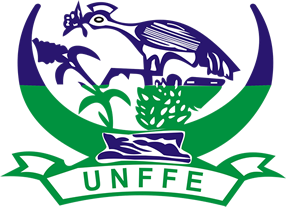UNFFE launches a two-year project (Dec 2021-Dec 2023) to contribute to the improved and sustained engagement of civil society with the government as a means of influencing and driving inclusive development.
Uganda’s civil space is shrinking (Konrad Adenauer Stiftung: Centre for Development Alternatives, 2019, CIVICUS 2017) despite its importance in enhancing the quality, depth and reach of the democratic dialogue. Civil society organizations (CSOs), particularly those working on issues of human rights, democracy, corruption, media rights, the rule of law and governance find it harder to effectively engage or peacefully oppose the state without the risk of attack or closure of operations. Yet, despite these difficulties, CSOs remain very critical in the development and delivery of policies and programmes that contribute to poverty reduction and human development. More so, in an environment where the Covid-19 pandemic has caused unprecedented economic negative shocks and has had a large impact on day-to-day life, civil society organizations that represent a wide range of people and work with marginalized communities are key in consensus building among citizens.
This action aims to support the Uganda National Farmers Federation (UNFFE) in its efforts to mainstream/entrench civic values, human rights, democracy and respect for the rule of law for a vibrant farming ecosystem in Uganda. The action focuses on the binding constraints that create barriers to effective engagement of farmers’ organisations in the development process for inclusive growth, such as (i) weak internal governance of farmers’ organisations; (ii) inability to mobilise and sustain citizen participation and representation; and (iii) lack of capacity to influence public policy. The capacity support of Trias in this action will result in increased knowledge, skills and internal organizational policies for UNFEE and its members which address these binding constraints and become more inclusive organisations integrating women, youth and underprivileged people. UNFFE and its members will also be more capable of engaging with government agencies and local government units and able to work within a very challenging civic space context.
The proposed action is highly relevant to the needs and constraints of CSOs in Uganda, focusing on rural areas and the agricultural sector, which employs over 70 per cent of the working population. CSOs in agriculture are critical for the mobilization of citizens and their participation and engagement in economic and, ultimately, political processes. However, farmers CSO are relatively weak and their specific socioeconomic, such as the high levels of poverty and illiteracy among farmers and the distance from the capital where political decision-making mostly takes place, limit their civic engagement.
Speaking at the launch, Katungisa Kenneth the CEO of UNFFE stressed the need to build resilience and governance capabilities at all levels starting with the District Farmers Associations (DFAs) up to the UNFFE Secretariat. He also thanked Trias Uganda and Vi Agroforestry for being friends of the farmers with clear value-added. Finally requested all DFAs to take advantage of using our structures in the implantation of the Parish Development Model.
Dr Dick Kamuganga President of UNFFE pointed out the need to use the UNFFE robust structure to strengthen the voice of the farmers through an inclusive approach to build better democratic practices, especially the vulnerable groups. He also extended a vote of thanks to all farmers and farmer leaders, development partners and government who are contributing greatly to the socio-economic transportation of the country.
During his opening remarks, Januario Ntungwa Regional Director Trais East Africa emphasized the need to strengthen the voice of the farmers in policy formulation but also embrace the core values of building better democratic practices right from the grassroots with a shared vision to provide services to all smallholder farmers.
The Deputy Head of Mission at the Embassy of Belgium in Uganda noted that farmers are the foundation of the economic growth and inclusive development agenda, giving them a voice is strengthening the nation.
Project key results
- UNFFE and its selected members are more aware that there is a determinate relationship between the quality of the civic space and inclusive development.
- UNFFE and its selected 20 members have improved their organizational governance.
- UNFFE and its selected 20 members have increased their influence in national and subnational decision-making processes.
Our approach
Organizational Strengthening and Institutional Development (OS/ID) of partners in areas linked to the self-identified constraints that create barriers to the functioning of farmers organizations. In this case, these are (i) weak internal governance; (ii) inability to mobilize and sustain citizen Participation and representation; and (iii) lack of capacity to influence public policy.
Main activities
- Trainings and training of trainers for replication
- Technical advisory coaching, mentoring,
- Analysis and reflection on relevant issues
- Provision of information, awareness-raising and empowerment
- Conducting action research
- Public meetings
- Learning, monitoring and evaluation.
The project targets 2000 key officers, leaders, staff and 20 members of UNFFE in 20 districts of the country that is West Nile- Arua, Koboko, Moyo, Adjumani, Nebbi and Zombo. Northern- Gulu, Lamwo, Kitgum, Agago, Oyam, Apac. Western, Mid-West and Central- Kamwenge, Kyegegwa, Kabarole, Isingiro, Kasese, Masindi, Hoima and Kiboga districts.





